Uncovering the Best ShaderTool Alternatives for Shader Development
ShaderTool offers a powerful and flexible node-powered pipeline for writing shaders in HLSL or GLSL, complete with an integrated code editor, real-time results, and support for various resources like models, textures, and audio. Its ability to export shaders and integrate them directly into DirectX or OpenGL applications makes it a valuable tool. However, for various reasons—be it platform compatibility, specific feature requirements, or a preference for open-source solutions—many developers seek effective ShaderTool alternative options. This article explores some of the top contenders that can meet diverse shader development needs.
Top ShaderTool Alternatives
Whether you're looking for web-based solutions, desktop applications, or mobile editors, the world of shader development tools offers a rich variety of options. Here's a curated list of excellent alternatives to ShaderTool, each bringing its own strengths to the table.

Shadertoy
Shadertoy is a pioneering web-based platform that allows developers to write and share GLSL shaders directly in their browser using WebGL. It's a fantastic free alternative to ShaderTool for those who prefer an online, community-driven environment, offering live coding, content discovery, and a vibrant comment section.
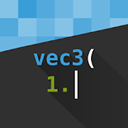
Shader Editor
Shader Editor is a free and open-source Android application that lets you create and edit GLSL shaders on your mobile device, even using them as live wallpapers. It provides a live-coding editor with syntax highlighting, making it a highly convenient and portable ShaderTool alternative for on-the-go development, with the added benefit of being ad-free.
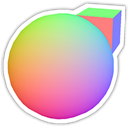
SHADERed
SHADERed is a lightweight, full-featured desktop tool for creating and testing HLSL and GLSL shaders, available for free and open-source on Windows and Linux. It stands out as a robust ShaderTool alternative due to its configurable nature, support for geometry shaders, and the ability to import 3D models, images, and visualize music.
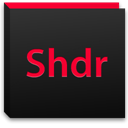
Shdr
Shdr is a free and open-source online ESSL (GLSL) shader editor, viewer, and validator powered by WebGL. It's an excellent web-based ShaderTool alternative for those needing quick shader prototyping and validation directly in their browser.

Shade - Pro Shader Editor
Shade transforms your iPhone or iPad into a professional node-based shader editor. This freemium application provides full support for building stunning, connected GLSL shader graphs that render in real time, making it a powerful mobile ShaderTool alternative for visual shader creation.
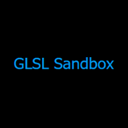
GLSL Sandbox
GLSL Sandbox is a free and open-source online GLSL shader gallery and live development tool. It's a straightforward web-based ShaderTool alternative where users can freely add and explore shaders without needing an account, focusing on WebGL-powered creations.

ShaderLab
ShaderLab is a free WebGL2 GLSL Editor designed for the browser, offering a live view of shader progress as you code. As a web-based ShaderTool alternative, it features automatic JIT compilation on code change, external audio inputs, and a social network for sharing, making it a collaborative and efficient tool.
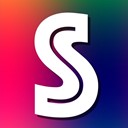
Shaders - Shader editor
Shaders - Shader editor is a free iPhone app that lets you view, create, and share GLSL shaders with other users. It's a great mobile ShaderTool alternative for those looking for a community-focused shader editing experience on iOS.
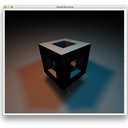
ShaderWorkshop
ShaderWorkshop is a free and open-source interactive GLSL fragment shader editor inspired by Shadertoy and built with Qt. It's a self-hostable ShaderTool alternative, offering a robust desktop environment for GLSL development.

KodeLife
KodeLife is a real-time GPU shader editor, live-code performance tool, and graphics prototyping sketchpad. Available for free and with web support, it's a versatile ShaderTool alternative providing cross-platform compatibility, GLSL support, and an integrated development environment (IDE) for shader programming, including Apple Metal support.
Each of these ShaderTool alternatives offers unique benefits for different workflows and preferences. We encourage you to explore them to find the best fit for your shader development needs, whether you prioritize web-based convenience, mobile accessibility, or robust desktop features.